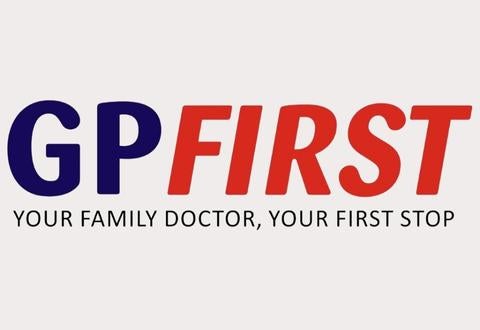Changi General Hospital will NEVER ask you to transfer money over a call. If in doubt, call the 24/7 ScamShield helpline at 1799, or visit the ScamShield website at www.scamshield.gov.sg.
Focusing on ADHD
We shine a spotlight on Attention Deficit Hyperactivity Disorder (ADHD), and debunk myths associated with this condition.


By Dr Sanjiv Nair,
Associate Consultant, Department of Psychological Medicine,
Changi General Hospital
'Attention Deficit Hyperactivity Disorder' (ADHD) is a topic that has attracted public attention of late. While raising awareness of the condition is beneficial to the community, it is crucial to note that not every wandering mind or restless body is necessarily a case of ADHD. Dr Sanjiv Nair, Associate Consultant, Department of Psychological Medicine, Changi General Hospital (CGH), sets the record straight.
What is ADHD?
ADHD is a condition that makes it hard for people to stay focused on a task, keep physically still, or think before they act. It is a developmental condition — people are born with this condition — showing in symptoms before the age of seven, and continuing to affect a person throughout their lifespan. ADHD affects all aspects of everyday life, including education, work and relationships.

“I cannot concentrate on my work, this means I have ADHD.”

FACT: One might not be able to cure ADHD with lifestyle changes, but making changes to how you live day to day is key to managing ADHD.
Establishing routines, eating healthy and staying physically active are great first steps. Using different ways to stay organised can make a big difference to effectively completing tasks, remembering lists of things and reducing accidents, which are common challenges that people with ADHD have to contend with.
Medications can be effective in treating ADHD, but the decision to prescribe medication for ADHD needs to take into consideration the risk of side effects and adverse events, individual lifestyle modifications, and usage patterns, so that medication is appropriately and safely given.
Only taking ADHD medication without addressing other factors contributing to poor concentration and organisation can lead to an unhealthy pattern of relying on more medication to improve one's performance.

“There is nothing I can do, I just have to take medication.”

FACT: One might not be able to cure ADHD with lifestyle changes, but making changes to how you live day to day is key to managing ADHD.
Establishing routines, eating healthy and staying physically active are great first steps. Using different ways to stay organised can make a big difference to effectively completing tasks, remembering lists of things and reducing accidents, which are common challenges that people with ADHD have to contend with.
Medications can be effective in treating ADHD, but the decision to prescribe medication for ADHD needs to take into consideration the risk of side effects and adverse events, individual lifestyle modifications, and usage patterns, so that medication is appropriately and safely given.
Only taking ADHD medication without addressing other factors contributing to poor concentration and organisation can lead to an unhealthy pattern of relying on more medication to improve one's performance.

“I have ADHD because many self-screening tools have told me so.”

FACT: Online quizzes can be helpful to start assessing if you have ADHD, but they do not give you the whole picture. Neither is there one specialised test to diagnose ADHD.
ADHD is best diagnosed with a combination of patient interviews, parent interviews about the individual's childhood symptoms, their teacher's feedback on their classroom behaviour and learning patterns, as well as subjective and objective tests of learning, memory and attention.
There are many overlaps in symptoms between ADHD and other mental health problems, as well as other causes of inattention. Self-screening tools are generally not able to consider alternative diagnosis. For example, a self-screening tool cannot tell if your inattention is due to lack of interest, a distracting environment or ADHD.
Tips on how to navigate life with ADHD
- Keep lists: Use applications or pen and paper to help you remember what you need to do.
- Plan: Have your schedule on your phone or a planner to avoid last-minute decision-making.
- Break it down: Cut big jobs into smaller pieces with deadlines you can hit.
- Stick to a routine: It helps to do things in a regular order.
- Cut out distractions: Find what pulls your focus away and try to reduce it. Watch how much screen time you have.
- Write it out: Jot down what is bugging you to clear your head.
- Tidy up: A clean workspace helps you to think straight.
- Find your quiet: Too much noise can be a distraction.
- Banish distractions: At work, try to put away things that side-track you, like your phone or games.
- Celebrate the small stuff: Pat yourself on the back for the little wins.
- Be clear on goals: Knowing what you are working toward keeps you focused.
- Get a buddy: Having someone to remind you about meetings or to join you in a task can help you stay on track.
Stay Healthy With
© 2025 SingHealth Group. All Rights Reserved.


















